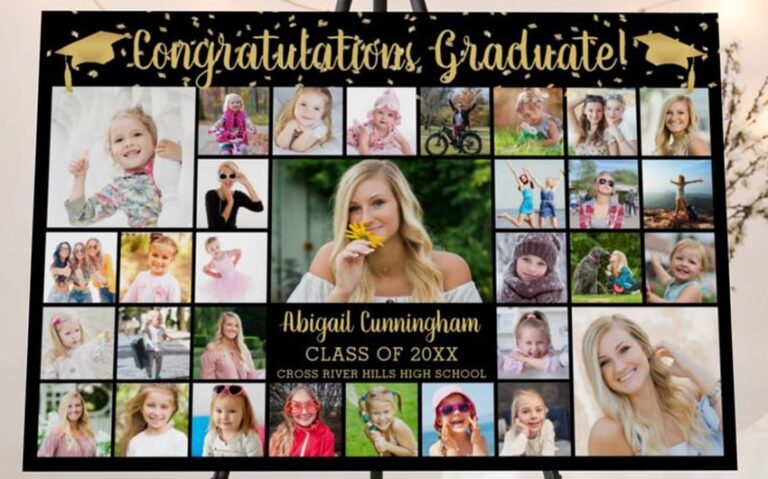5 Steps To Delivering A Powerful High School Graduation Speech
Graduation day is a once-in-a-lifetime moment—filled with excitement, nerves, and a whole lot of emotion. Whether you’re stepping up to the mic as valedictorian, class president, or just someone chosen to represent your peers, the pressure to say something meaningful is real. Writing a high school graduation speech can feel overwhelming, but it’s also a rare chance to reflect, celebrate, and inspire.
The good news? You don’t need to be a professional writer to create something memorable. With a little heart, some structure, and your own unique voice, you can deliver a message your class will never forget.
1. Opening the Speech
The opening of your speech sets the tone for everything that follows. It’s your moment to grab the audience’s attention and let them know they’re about to hear something worth remembering. A strong start can be funny, heartfelt, surprising—or all three. What matters most is that it feels genuine and draws people in.
One effective way to begin is by using humor, a powerful quote, or a personal anecdote. A clever joke or a lighthearted comment can immediately break the ice and make your classmates feel at ease. A favorite quote from a book, song, or even a teacher can offer inspiration while setting the right emotional tone. Alternatively, sharing a short story about a relatable high school moment can create an instant connection and make your message feel personal.
It’s also important to acknowledge the people who made the journey possible. A few thoughtful words for your classmates, teachers, parents, and school staff show appreciation and set a respectful tone. It doesn’t have to be long—just sincere.
Example 1 (Humor + Acknowledgment):
“Before I begin, I want to thank my alarm clock for never working, my homework for always being late, and my teachers for somehow still believing in me. Seriously though, we wouldn’t be here without the support of every parent, teacher, coach, and cafeteria worker who cheered us on—thank you.”
Example 2 (Anecdote + Quote):
“I remember walking into school freshman year wearing my backpack way too high and trying not to get lost in the hallways. Now, as I stand here, I’m reminded of a quote that says, ‘You’ll never know how far you’ve come until you look back.’ And looking back now, it’s incredible how far we’ve come together.”

2. Reflecting on the High School Journey
This part of your speech is where the emotions truly begin to shine through. It’s your chance to take a walk down memory lane and reflect on the shared experiences that defined your class’s high school journey. From the awkward nerves of freshman year to the confident stride of senior year, these moments bring everyone together in nostalgia and laughter.
Think about those early days—getting lost trying to find your first class, trying to open a locker that just wouldn’t budge, or nervously figuring out where to sit at lunch. Fast forward to senior year, and you’ll remember the excitement of spirit weeks, pep rallies, prom, and finally putting on that cap and gown. These shared milestones bond a class together and remind everyone how much you’ve grown.
Of course, every journey has challenges, and your class likely faced more than a few—maybe even a global pandemic. Virtual classes, canceled events, stressful exams, and tough goodbyes taught your class how to adapt and persevere. These moments might not have been easy, but they shaped your resilience and reminded you how strong you can be when you face struggles as a team.
Equally important is the growth that’s happened—both academically and personally. High school isn’t just about tests and grades; it’s about figuring out who you are, finding your people, and learning lessons that don’t come from a textbook. The friendships, inside jokes, late-night study sessions, and hallway conversations become the memories that last well beyond graduation.
Example 1 (Shared Memory):
“I’ll never forget our first pep rally, when the sound system failed and half the class just started chanting our own cheer. It was chaotic, loud, and totally unplanned—but somehow, it became one of our best memories.”
Example 2 (Challenge + Growth):
“Going through remote learning during the pandemic was tough. We missed out on so many typical moments, but we also gained something valuable—independence, creativity, and a deep appreciation for what it means to be together in person again.”
3. Recognizing Achievements and Gratitude
A great high school graduation speech isn’t just about looking back—it’s also about shining a light on the people and accomplishments that made the journey special. This is your opportunity to celebrate your class’s victories, both big and small, and to express sincere thanks to the people who helped along the way.
Start by recognizing the achievements of your classmates. Maybe your school won a state championship, produced a record-breaking number of honor roll students, or put on a play that brought the whole community together. But achievements aren’t just about awards—sometimes, showing up every day, overcoming personal struggles, or helping a friend through a tough time is just as worthy of celebration. Every student in the room has something to be proud of, and this is your moment to acknowledge that.
Equally important is showing gratitude. Take time to thank the teachers who stayed late to help you study, the counselors who listened when you felt overwhelmed, and the coaches who pushed you to do better. Don’t forget the parents and guardians who supported you every step of the way—from early morning drop-offs to late-night pep talks. A few words of appreciation can mean a lot to the people who helped you reach the finish line.
Example 1 (Celebrating Achievements):
“This year, our robotics team made it to nationals, our choir brought home a first-place trophy, and our debate team won more arguments than most politicians. But beyond the awards, we showed what it means to be committed, creative, and determined.”
Example 2 (Showing Gratitude):
“To the teachers who believed in us even when we didn’t believe in ourselves—thank you. To our families, who sat through late-night practices, endless homework questions, and more mood swings than we care to admit—you’ve been our backbone through it all.”

4. Looking Ahead: The Future
As your speech moves forward, it’s time to shift focus from the past to what lies ahead. Graduation isn’t just the end of high school—it’s the launchpad to your next adventure. This section is all about inspiring your classmates to dream big, face the unknown with confidence, and step into the future with hope.
The future may look different for everyone—some will head to college, others to the workforce, the military, or a gap year. But no matter the path, what connects you all is the sense of possibility. This is the moment to remind your peers that it’s okay to be unsure, to try new things, and even to fail sometimes. What matters most is the courage to keep moving forward.
Inspire your classmates to stay true to themselves, embrace change, and lean into their passions. Talk about values that matter beyond school—kindness, resilience, curiosity, and integrity. These are the traits that will carry you further than any report card ever could. Use this section to spark motivation and remind your audience that while high school may be behind you, your greatest achievements are still ahead.
Example 1 (Encouragement):
“As we step out into the world, we’re not expected to have all the answers. But we are expected to keep asking questions, keep learning, and keep showing up—even when things get tough. That’s where real growth begins.”
Example 2 (Inspiration):
“We may be heading in different directions, but we’ll always share this starting point. Let’s go out there and make it count—one brave, uncertain, exciting step at a time.”
5. Closing the Speech
The closing of your speech is your final chance to leave a lasting impression. It should wrap everything together and send your audience off with a sense of pride, gratitude, and excitement. Aim to be heartfelt and hopeful, and don’t be afraid to show emotion—it’s a big moment.
You can end with a powerful quote, a meaningful message, or a call to action. Maybe you’ll urge your classmates to chase their dreams, stay connected, or make a difference in the world. Keep it simple and sincere. A strong closing doesn’t need to be dramatic—it just needs to be real.
Ending on a high note will ensure your words stay with your audience long after the caps hit the ground. Leave them smiling, inspired, and proud to be part of the graduating class.
Example 1 (Quote + Message):
“As Maya Angelou once said, ‘People will never forget how you made them feel.’ Let’s go out into the world and make people feel seen, heard, and valued.”
Example 2 (Heartfelt Goodbye):
“This isn’t goodbye—it’s just the start of something new. Congratulations, Class of [Year]. We made it, and the best is yet to come.”






